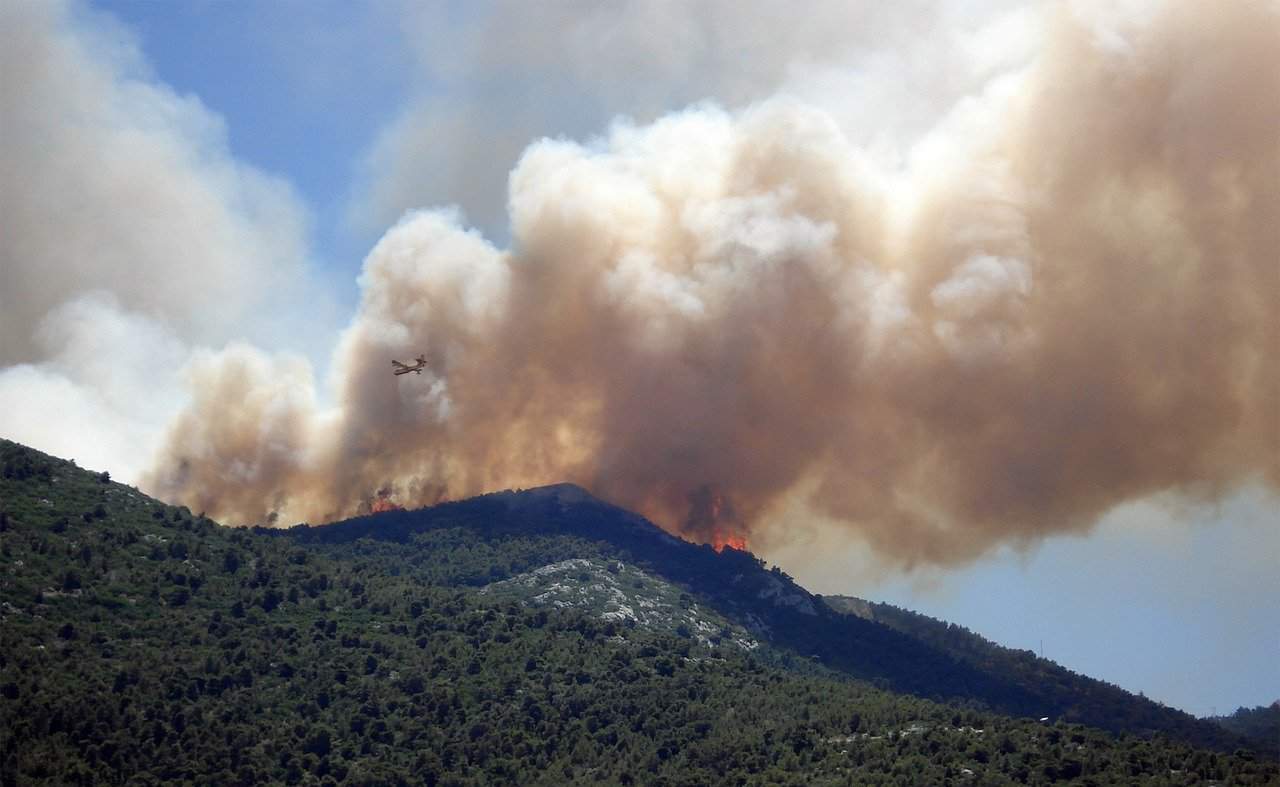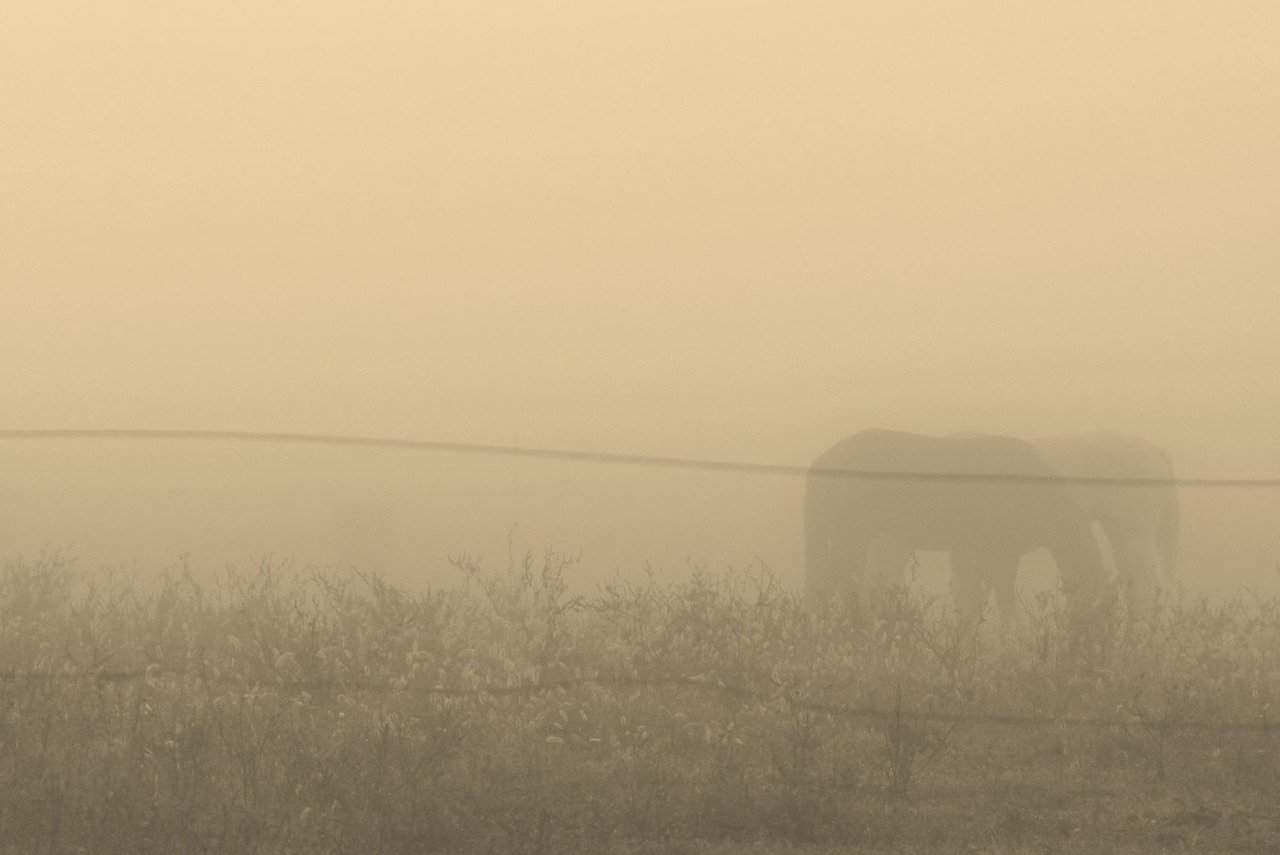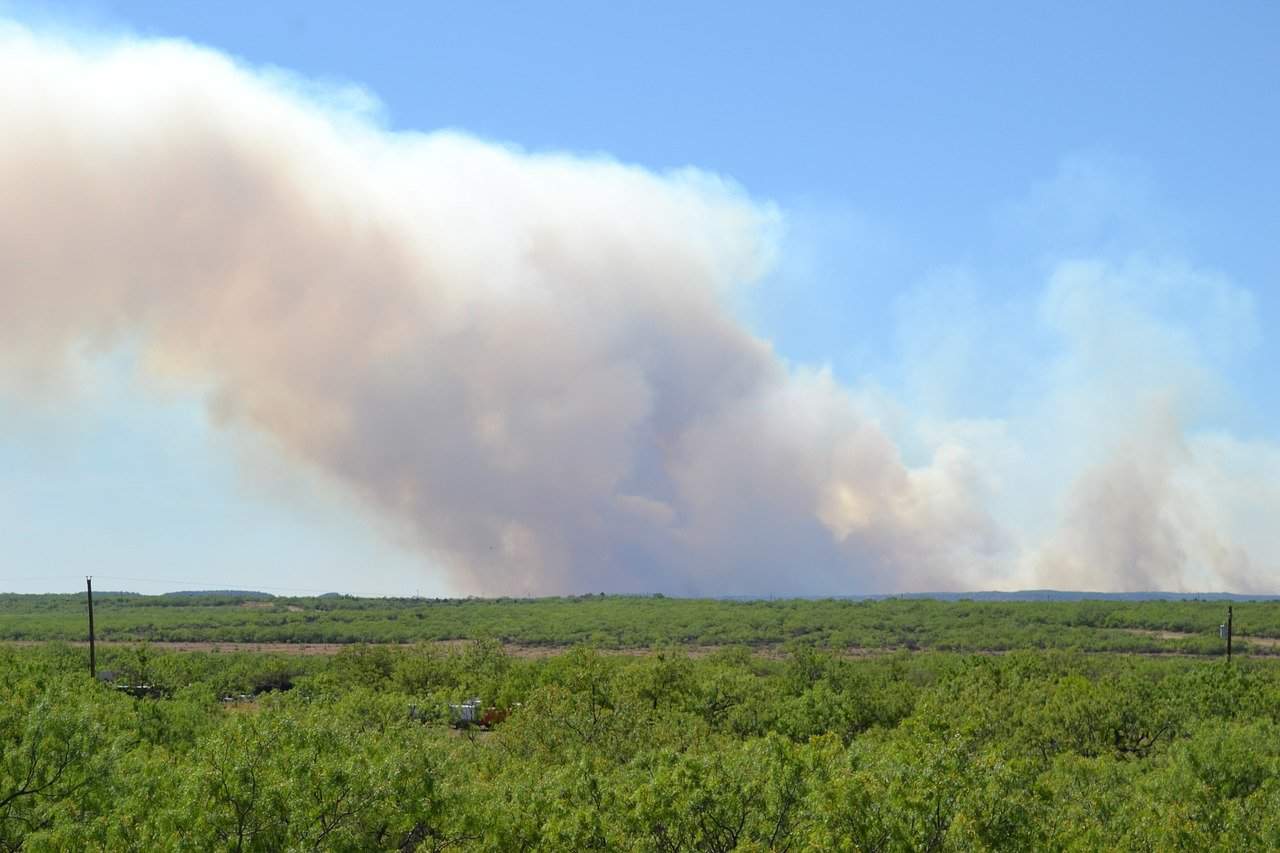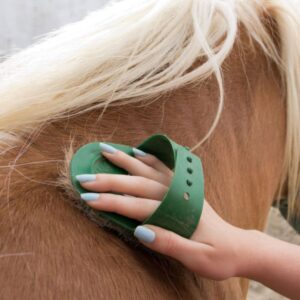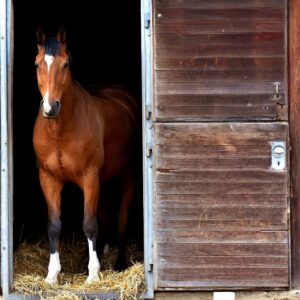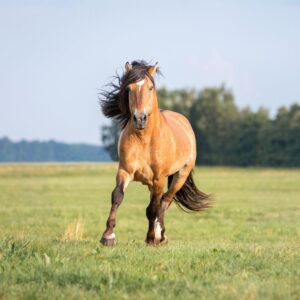As wildfires in the western United States become more common, horse owners across the country face an important task. Smoke and ash from major wildfires has potential to travel hundreds of miles. It follows wind patterns to areas far away from the actual fires to bring potential harm to even more natural areas and the people and animals that live there. As a horse owner, it's your responsibility to protect your herd from the harmful affects of smoke and ash. This isn't easy when the air is hazy and thick and ash settles in your pastures. There are ways, however, that experts say you can reduce the health impact on horses.
The Risk
While the particular health risk caused by wildfire smoke exposure depends on the specific fuel that's being burned, the combination of liquid droplets and solid particles can cause serious damage when inhaled.
In minor cases, inhaling smoke can aggravate the airways. Heavy or longterm exposure can also cause a persistent cough, nasal discharge, and difficulty breathing. There's also the risk of particulates hampering the immune system and making it more difficult for a horse's lungs to naturally remove other materials, like pollen and bacteria.
These symptoms will always be worse in horses suffering from a preexisting respiratory condition.
Protect Your Horse From Wildfire Smoke and Ash
The University of California Veterinary Medicine department and other health experts have put together the following guidelines to help protect horses and livestock during times of wildfire smoke and ash exposure.
Limit Exercise
As much as you want to get out and ride, and as much as your horse needs daily exercise to stay happy, working out in smoky conditions is not a good idea. Your horse's increased respiratory rate will mean they're breathing in even more smoke. Those particulates will irritate their airway and make it difficult to breath.
Consider taking your horse to an indoor arena when the smoke in your area is particularly bad.
Provide Plenty of Water
Of course, water is always important for your horse's health. But during times of smoke coverage, your horses will need the extra hydration. Make sure large water tanks are positioned nearby your horse's eating area. Drinking during or directly after meals will help moisten the airways and protect against inhaled particles.
Hose Down Your Pasture
If you can see ash settling on the ground and other surfaces, that means your horse's pasture is also covered in that wildfire debris. There is obvious concern for horses forced to graze in areas coated by ash. Researchers associated with the University of California Davis, however, report initial findings that grass and other forage affected by wildfire ash is likely safe for horses to eat.
There is, however, risk of horses inhaling the ash while they're eating. To reduce this risk, it's recommenced to wet down the pasture area with a lawn sprinkler before allowing horses accesses. This makes the particulates less breathable.
Utilize Your Barn When Necessary
In times when the haze is particularly thick, it's best to keep horses in the barn. Smoke might permeate the area anyway, but any protection you can provide your horse will be worth the effort. Wait until the wind shifts and the smoke hopefully dissipates before turning your horses out.
Provide Additional Care To Airway-Compromised Horses
Horses that already suffering from a respiratory-related condition might need medication to help protect them from wildfire smoke and ash. Ask your veterinarian about the benefits of bronchodilator drugs and nebulized medications. Your vet might also recommend a steroid, supplement, or antibiotics.
Horse Courses by Elaine Heney
- Listening to the Horse - The Documentary by Elaine Heney & Grey Pony Films
- Shoulder In & Out Training for better balance, bend & topline development with your horse
- Over 110+ Polework Exercises & Challenges to Download
- Dancing at Liberty & Creating Connection with Your Horse (11 lessons) - Grey Pony Films
Don't Rush Back Into Training
It's important to give horses affected by wildfire smoke appropriate time for healing. As tempting as it is to get out and ride on the first smoke-free day, your horse's recent smoke exposure could still be affecting their lungs.
UC Davis School of Veterinary Medicine recommends giving horses at least two weeks of rest after all the smoke leaves their environment. You can use the air quality index measurement provided by most weather stations to help you determine when the smoke has officially left your area.

